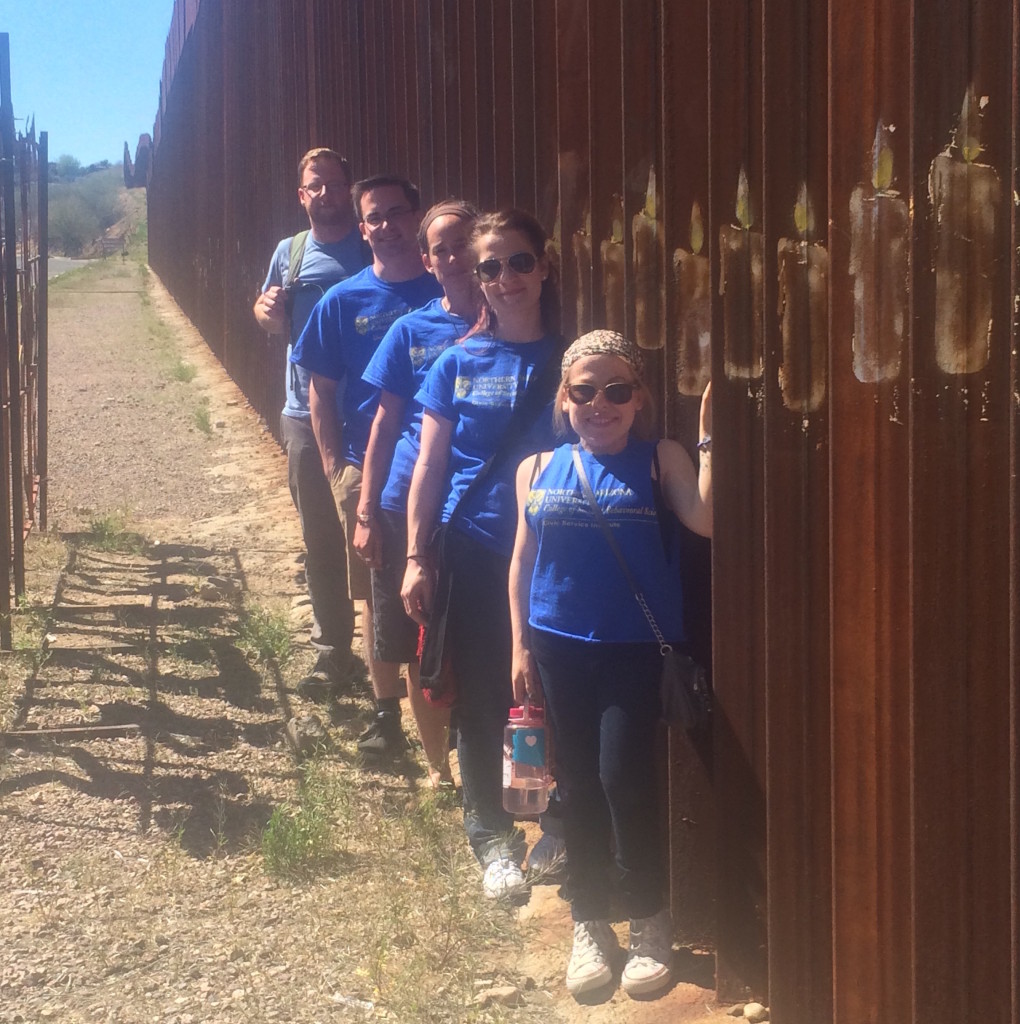By Isaac Romero and Corrine Jarnagin,
NAU students
Empty water bottles, unfolded blankets and fully charged phones decorated the cockpit of our vehicle. The excited faces of travelers on a long trip occupied every available seat. The U.S.-Mexico border was our destination. The introduction of this story is reminiscent of a typical spring break; however, the mission of an NAU Alternative Spring Break was not to party, but to educate.
The accessibility to basic resources is something that we take for granted as American citizens. Yet, at Kino Border Initiative, we met many who lack these basic necessities. Clattering plates and somber frowns filled the room. We saw people who have been deported and travelers who have been repatriated.
After a brief introduction of our group, the work began. We distributed the food among the sunburned masses. The simple meal was an enormous gift to those who had suffered a treacherous trip.
Then, we had a chance to hear their stories. We witnessed firsthand accounts of the “push” and “pulls” of immigration. The attraction to our nation is far more complex than just career opportunities. It encompasses reuniting families, seeking political asylum and escaping violence that implores the migrants to abandon their motherlands. Men, women and children were reminded of their basic human rights including the right to live free of violence and persecution.
It was disheartening to listen to their stories but also interesting to see the efforts of law enforcement.
Customs and Border Protection was willing to give us a tour of their facilities and share their perspective on immigration. We questioned whether some of the tactics were the most effective methods. They reminded us that their continuous struggle to secure the border has been in an effort to provide a sense of safety to Americans.
Although the trek for migrants crossing the desert is necessary for their well being, the agents feel it is their responsibility to ensure that the laws of our nation are enforced. It was frustrating to witness the discrepancies between the stories of migrants and agents.
Written words do not provide justice to what we have experienced during the alternative spring break. This trip brought us insights into the multifaceted issues of immigration and has revealed a great humanitarian crisis that deserves further investigation and resolve. The discoveries on this trip will be elaborated at the undergraduate symposium, April 24 in the Skydome.



